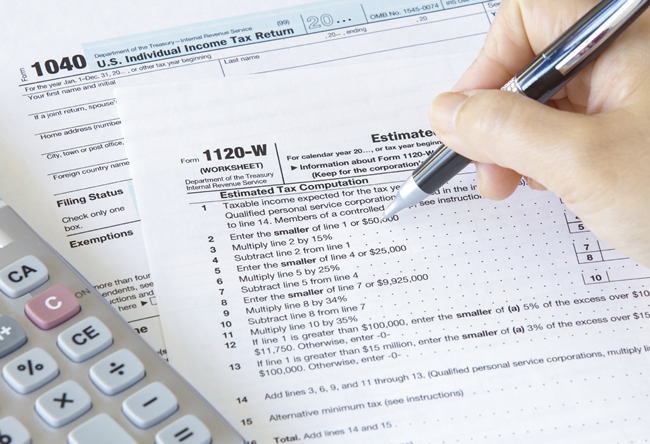It is to your best interest to file your tax return every year by the due date, or at least apply for an extension. Not filing does not mean you avoid paying your taxes, and it only makes things worse. The IRS files for you, often with a much higher tax liability since they do not include some of the deductions and credits for which you eligible. Additionally, you will be hit with penalties and high interest and may even face criminal charges. However, there is a time limit for how long the IRS can come after you for not filing your annual tax return.
The Time Limit on Tax Filing
According the tax code, the IRS cannot press criminal charges after six years from the due date of the tax return. This means that if you failed to file your 2008 tax return by the April 15, 2009 due date and did not subsequently file it, then you no longer have to worry about any criminal charges being processed after April 2015.
The bad news is that the IRS can still come at you for the money and impose civil penalties for not filing for as long as they want to do so. The interest, penalties, and other fines can continue to capitalize on unfiled returns indefinitely. Although the IRS can approach you about the return, they tend to not follow up after six years. If they do, it can be easier to avoid having to file if you state you do not have enough information to properly prepare the return. Unfortunately, now that most documentation is digital, the IRS may have the relevant information to create a return for you, and you are still liable for the tax.
Why You Need to File
No matter what, you should file your tax return, since it is actually a criminal offense to not file. Although you may not end up in jail, you still may face criminal charges. Therefore, even if you cannot pay your tax debt, you should at the minimum file the return. You may face collective action, such as wage garnishment, a lien, or a levy, but you will not have to worry about any criminal penalties, which can also include fines up to $25,000 per year.
It is in your best interest to file as soon as you can, even if it is late. The IRS tends to be more lenient on voluntary late filers than on non-filers. Additionally, while the IRS can always come to you to get you to file that late tax return and pay the tax, once you file, there is a statue of limitations on the debt. Although you still will be culpable for paying it and face collective action if you do not, after ten years the tax debt is legally forgiven, which means it can never be collected and any liens are released. The caveat is that the ten years begins from when you filed the tax return, or after an audit decision becomes final.
Communication with the IRS
Many people who neglect to file their taxes do so simply because they have forgotten. That is why the IRS first informs people through a letter. If you take action right away, you will avoid the worst of the problems. If you do not, then the IRS will continue to harass you until you do or proceed with harsher penalties. You do not have to inform the IRS that you are planning on filing a late return, although in some cases it may be in your interest to do so.
If you have late returns you need to file, the tax professionals at Fidelity Tax Relief can help. We can answer your questions and assist you in preparing returns for all your late returns. Call us today at 877-372-2520 to find solutions for this and any other federal tax debt problems.


